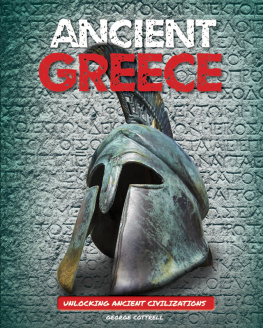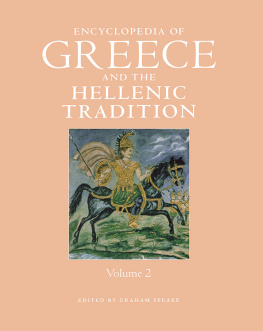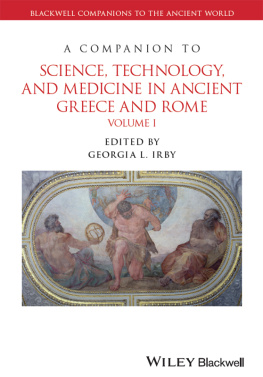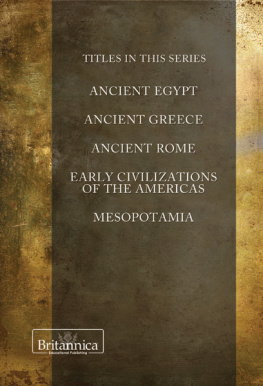George Sarton - Ancient Science Through the Golden Age of Greece
Here you can read online George Sarton - Ancient Science Through the Golden Age of Greece full text of the book (entire story) in english for free. Download pdf and epub, get meaning, cover and reviews about this ebook. City: Mineola, year: 2012, publisher: Dover Publications, genre: History. Description of the work, (preface) as well as reviews are available. Best literature library LitArk.com created for fans of good reading and offers a wide selection of genres:
Romance novel
Science fiction
Adventure
Detective
Science
History
Home and family
Prose
Art
Politics
Computer
Non-fiction
Religion
Business
Children
Humor
Choose a favorite category and find really read worthwhile books. Enjoy immersion in the world of imagination, feel the emotions of the characters or learn something new for yourself, make an fascinating discovery.

- Book:Ancient Science Through the Golden Age of Greece
- Author:
- Publisher:Dover Publications
- Genre:
- Year:2012
- City:Mineola
- Rating:5 / 5
- Favourites:Add to favourites
- Your mark:
Ancient Science Through the Golden Age of Greece: summary, description and annotation
We offer to read an annotation, description, summary or preface (depends on what the author of the book "Ancient Science Through the Golden Age of Greece" wrote himself). If you haven't found the necessary information about the book — write in the comments, we will try to find it.
Although science did not begin in ancient Greece (millennia of work in Egypt, Mesopotamia, and other regions preceded Greek efforts) it is nevertheless true that methodic, rational investigation of the natural universe originated largely with early Hellenic thinkers. Thus, the major part of this book is of necessity devoted to Greece. Drawing wherever possible on original sources, Dr. Sarton, one of the worlds foremost historians of science, paints a vivid and illuminating picture of mathematics, astronomy, physics, biology, medicine, and other sciences as they emerged from the mists of prehistory and ultimately flourished within the context of Greek society. The book is divided into three parts. Part One begins with the earliest evidence of prehistoric mathematics, astronomy, and other science. Dr. Sarton then describes the achievements of Egypt and Mesopotamia, the dawn of Greek culture and the remarkable flowering of Ionian science in the sixth century B.C. Thales of Miletos, Anaximandrox, and Xenophanes are among the important figures discussed. An entire chapter focuses on the influential doctrines of Pythagoras.Part Two opens with the glory of Athens in the fifth century B.C. and its magnificent achievements in poetry and the arts, philosophy, and science. Described in lucid detail are groundbreaking contributions of Heracleitos, Anaxagoras, Protagoras, Zenon of Elea, Parmenides, Democritos, and many others. Also included in this section are perceptive discussions of geographers and historians of the fifth century (Herodotos, Thucydides, and others) and Greek medicine of the fifth century (chiefly Hippocratic). Part Three focuses on the extraordinary Greek thinkers of the fourth century B.C.: Plato and the Academy, Aristotle, Xenophon and many others, including such important schools of thought as the cynics, stoics, skeptics, and epicureans. Major attention is given to mathematics, astronomy and physics, natural sciences and medicine, Aristotelian humanities, and historiography and other topics. Of great value to the general historian and an exciting, arresting story for the lay reader. The Yale Review
George Sarton: author's other books
Who wrote Ancient Science Through the Golden Age of Greece? Find out the surname, the name of the author of the book and a list of all author's works by series.










